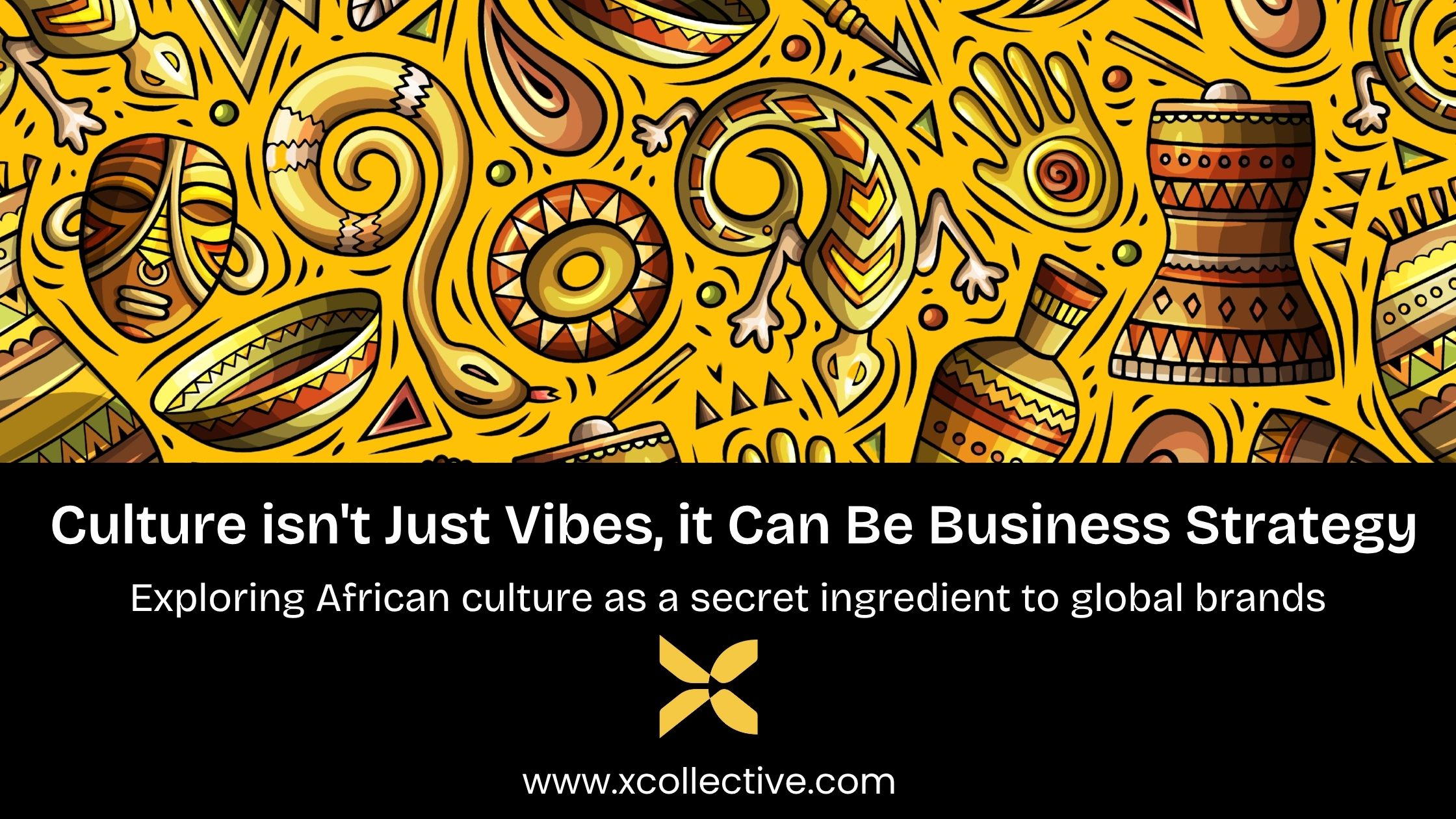African Culture: The secret to your brand going global as an African founder
If you’re building a brand that deserves to be seen, let’s talk. We’ll help you root your strategy in culture and build something the world can’t ignore.
-Admin
Admin at Xpression Collective

In Amsterdam, three young friends of Somali, Moroccan, and Ghanaian heritage started making T-shirts that carried little pieces of their African roots. No celebrity endorsements. No venture funding. Just culture.
That brand — Daily Paper — is now a global streetwear powerhouse, stocked in stores from London to New York, worn by Beyoncé, and valued as one of the most important voices in fashion today.
Their secret? They didn’t dilute their Africanness to fit in. They amplified it. From prints that nod to heritage, to campaigns shot in Accra and Lagos, to collaborations with African artists, culture wasn’t an afterthought — it was the strategy.
And that’s the point so many African founders miss.
Why culture matters in branding
Culture is not “vibes.” It’s not decoration. It’s the engine of connection. Here’s why:
Culture builds trust. A 2022 Edelman Trust Barometer report found that 58% of consumers buy from or advocate for brands that reflect their values and identity. In Africa, that identity is deeply tied to culture — language, music, fashion, food.
Culture differentiates. In a market where hundreds of fintechs or fashion labels are popping up every year, culture is what makes people say: this one feels like me.
Culture scales. Afrobeats is proof. In 2022 alone, Afrobeats grew 550% in global streams on platforms like Spotify. What started in Lagos nightclubs is now selling out stadiums in London and New York. Culture travels.
When founders ignore culture, they blend in. When they embrace it, they break through.
Case Studies: Culture at Work
1. African brands going global through culture
Daily Paper: Built from heritage, now a global streetwear powerhouse stocked in over 150 stores worldwide.
Mavin Records: More than a label, it’s an Afrobeats culture machine exporting African sound to the world. In 2023, Mavin was reportedly valued at over $125 million.
Nando’s: Started in South Africa, rooted in humor and peri-peri storytelling. Now in 30+ countries, using cheeky, culture-first campaigns to stand out.
2. Global brands winning Africa through culture
Fenty Beauty: Launched with 40 foundation shades, proving inclusivity wasn’t optional. Within the first month, sales topped $72 million, with Africa and its diaspora deeply resonating with the message: we see you.
Netflix: Not only invested in Nollywood originals, but also localized marketing by tweeting in pidgin English and making references only Nigerians would instantly get. That authenticity has fueled its dominance in African streaming.
Nike (Nigeria 2018 World Cup jersey): Inspired by Nigerian streetwear and identity. It sold out worldwide within minutes of release and became one of Nike’s fastest-selling jerseys in history.
Both patterns prove the same thing: whether you’re African going global or global entering Africa, culture is the unlock.
The opportunity for African founders
Africa is the youngest continent on earth — 70% of its population is under 30. That means the future of consumption here will be led by a generation fluent in TikTok, Afrobeats, streetwear, and memes — but also deeply aware of its roots.
This generation doesn’t want bland brands that look imported or faceless. They want brands that feel like home — while standing tall on the global stage.
For founders, that’s both the challenge and the opportunity: building with strategy, design, and storytelling that’s not just functional, but cultural.
What we believe at Expression Collective
At Expression Collective, this is the hill we stand on: clarity + culture = brand power.
We don’t believe Africa lacks talent or ambition. What’s missing is expression — the brand systems, websites, and products that allow the world to see, feel, and believe.
That’s why we co-create brands with visionaries who want to resonate globally. Not by copying Silicon Valley, but by grounding strategy in culture, intelligence, and authenticity.
Because in the end, culture isn’t just what makes you different.
It’s what makes you matter.
Back to Blogs
